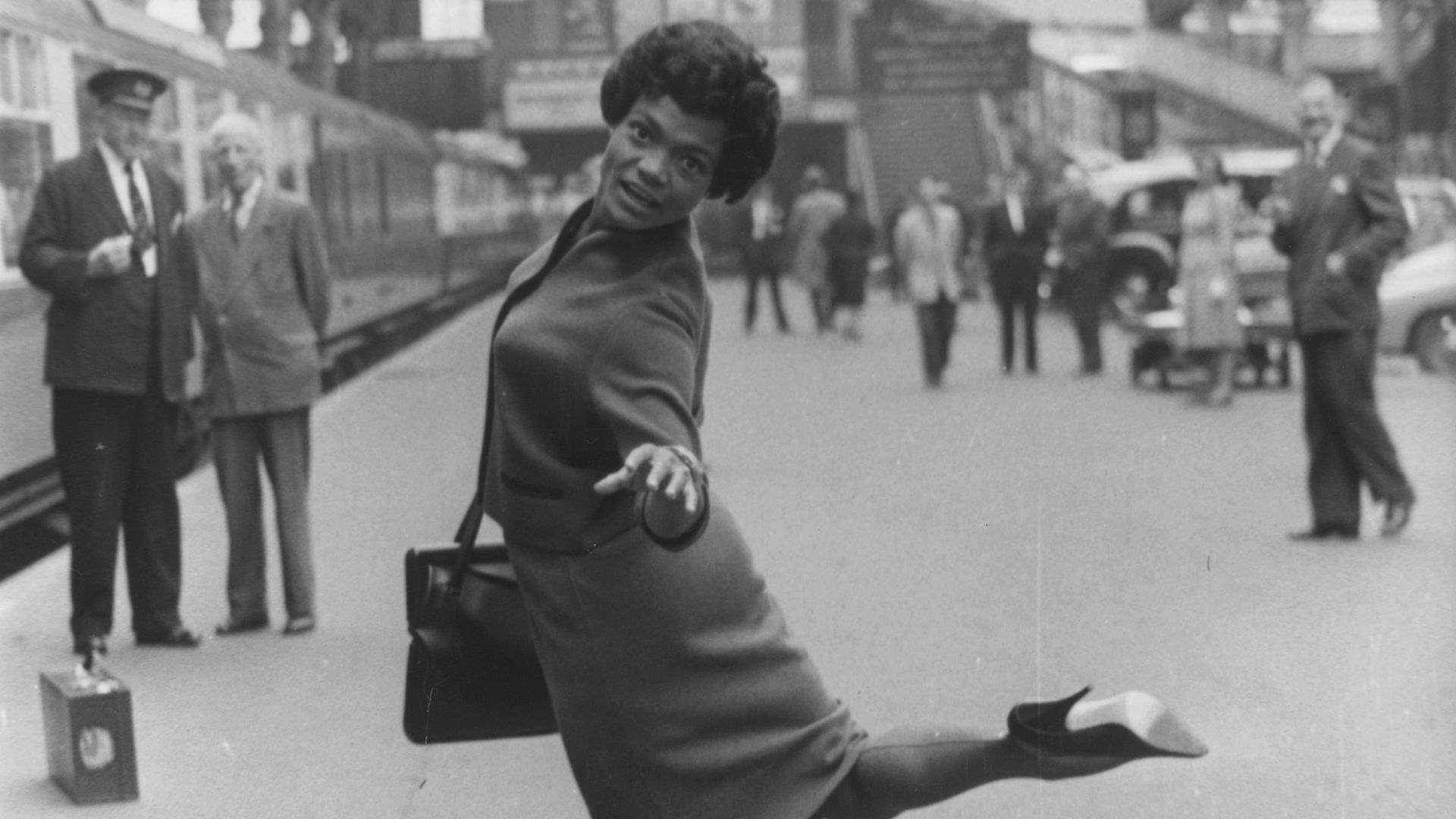
I miss the days when I’d think nothing of looking at my diary and seeing I had a lunch with someone like Eartha Kitt. The reputation of the West End stage meant that the greatest performers from all over the world were continually converging upon it. I realise now how I took that for granted, and, indeed, having a choice of three or four great shows opening every week to review.
The night before I interviewed Miss Kitt in 1988, I went to see her in Stephen Sondheim’s Follies. It’s widely recognised as one of the greatest stagings of the musical and her rendition of its big number I’m Still Here was a show-stopper. It had resonance because Miss Kitt was herself such a survivor. She also had a personality strong enough to fill the whole of the Shaftesbury Theatre.
The lyrics included the line “Good times and bum times, I’ve seen ‘em all, and, my dear, I’m still here” and that amounted to a fair enough summary of her life up until that point. She’d been born in 1927 in South Carolina. Her father was a share-cropper, who left her mother less than two years later, and the destitute black-Cherokee woman persuaded black neighbours to take her daughter in. She had started out in night clubs and got her break in 1950 when Orson Welles spotted her and cast her as Helen of Troy in his own version of the Faust story, Time Runs. He considered her to be “the most exciting woman in the world.”
She went on to gain acclaim as an actress and singer –notable hits included C’est si bon and Santa Baby. Her films included St Louis Blues, with Nat King Cole; Anna Lucasta, with Sammy Davis Jr; and Dragonard, with Oliver Reed.
Probably it was Catwoman in the 1960s television series Batman that defined her for a generation of youngsters.
She’d also found the time for political activism – she was a gay rights campaigner in the days when that still raised eyebrows – and so much of what she said during her career shows she understood the objectives of Black Lives Matter decades before the movement was founded.
I was in my twenties when I met her and of course too young to entirely appreciate a star of her magnitude. It was a hot summer’s day and she was wearing impenetrably thick sunglasses when we ate al fresco at a restaurant in Covent Garden. She explained in that distinctively feline voice of hers that the shades had nothing to do with the sun. She’d been involved in a road accident the month before and had needed 20 stitches. There was no question of her pulling out of the show.
“I was born to sing I’m Still Here,” she said. “I’ve certainly known bum times. I’m neither black nor white, so, in the early days in America, I had just about everybody against me. The CIA ran a smear campaign against me, saying I was a nymphomaniac, but, you know, I can count the men I’d been with on the fingers of one hand.”
She said Welles was not one of them. I could see what he found so special about her. It was the fact she was so completely unaffected. She’d suddenly lean across the table and gather up my salad in her hands and transfer it, without explanation, on to her plate. When one of my questions bored her, she’d let me know by taking out her tapestry and beginning, quite implacably, to weave.
At one point a man hovered beside our table and she turned towards him and scowled. “I am Eartha Kitt and I am trying to do an interview,” she said. The man replied courteously that he was the owner of the restaurant and he just wanted her to know how proud he was to have her as a patron. She finally took off her glasses, revealing all of her stitches, and smiled at him. “Oh, I am so sorry, I just get tired of it all sometimes. It’s only when you’re as old as I am that you can get to see how ridiculous it all is.”
When it got to the point she had to head back to the theatre to prepare for the evening’s performance, she turned to me and said “you’ll figure me out one day”. I don’t know if I’ve entirely managed that, but I am old enough now to recognise what a privilege it was to have met her. She was without question a one-off.










